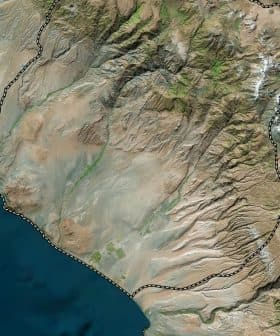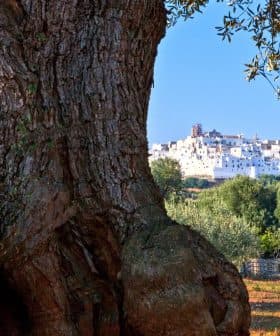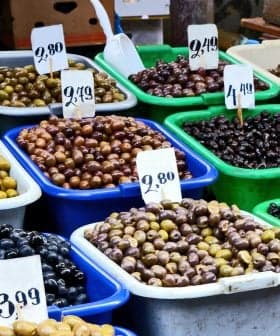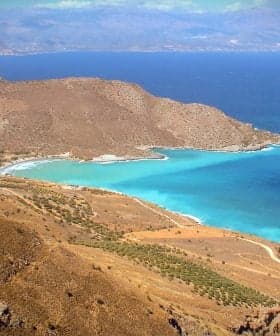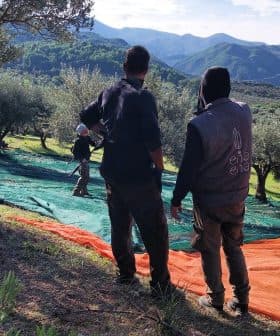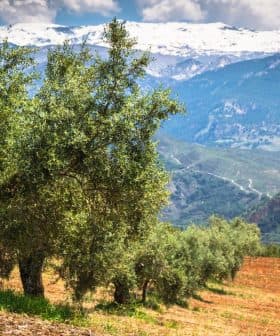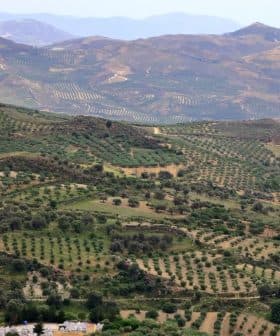 12.8K reads
12.8K readsProduction
Olive Oil Producers in Greece Brace for Steep Production Decline
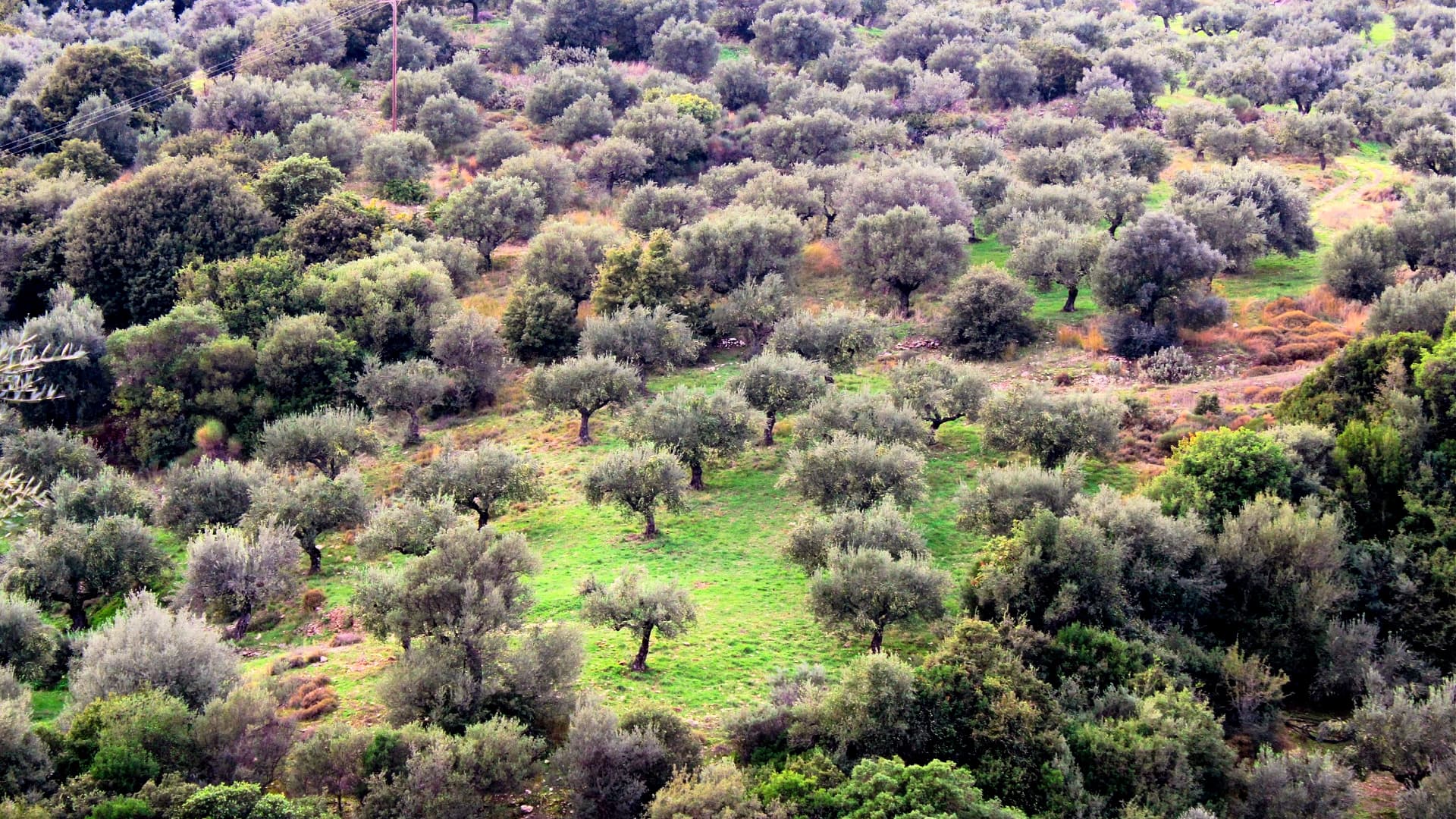
Olive oil producers in Greece are facing challenges ahead of the upcoming harvest due to low fruition, fruit fly infestations, and adverse weather conditions. Producers across the country, from the Peloponnese to Crete, are expecting significant reductions in olive oil production compared to the previous year, with concerns about maintaining high producer prices and documenting damage to olive trees.
While the next olive harvest is expected to begin in Greece in two months, olive oil producers across the country are disheartened by the problems afflicting their groves.
“There is high anxiety about the outcome of the coming crop,” Ioannis Kampouris, a producer based in the Korinthia region in the northeastern Peloponnese, told Olive Oil Times. “The low fruition and the fruit fly will be at the forefront of the olive harvest.”
Greece will likely yield approximately 200,000 tons of olive oil this season. This is partly due to the high production of the last crop year and partly to the impact of the fruit fly and the reduced fruition this year.
According to the regional government, the fruit setting of the olive trees is significantly reduced across the peninsula ahead of the 2023/24 crop year.
“I want to say from the outset that there is a big problem for both [the olive trees] fruit setting and viticulture,” said deputy governor Stathis Anastasopoulos in a regional council meeting early this month.
See Also:2023 Harvest Updates“[The reduced] fruition case refers to both table olives, where the situation is more serious, and olives destined for olive oil production,” he added. “All these problems are the result of climate change, the changes we all see every day.”
Kampouris echoed the words of the deputy governor, also projecting a significant reduction in the country’s overall olive oil production compared to last year’s bountiful yield of more than 300,000 tons.
“The Peloponnese will experience a late olive harvest due to the prevailing weather conditions,” he said. “In advance, some producing territories [on the peninsula] are having problems with the fruit fly, while others suffer from a lack of fruition. This is the case in our region also.”
“Greece will likely yield approximately 200,000 tons of olive oil this season,” Kampouris added. “This is partly due to the high production of the last crop year and partly to the impact of the fruit fly and the reduced fruition this year.”
Across the peninsula, in the southeastern Laconia region, the fruit fly is already threatening the region’s olive harvest.
“The weather conditions have favored the fruit fly to manifest itself in large parts of the region’s olive groves,” said Ioannis Rallis of the local agriculture department.
“Any pesticide operations should be cautious and well-coordinated this season,” he added. “The positive thing is that [the olive trees] are having a late flowering and fruiting this year.”
Meanwhile, on Crete, experts have warned of one of the island’s worst crop years ever recorded.
“Advise people to save this year’s oil to use it next year as well,” Manolis Gelasakis, a now-retired agronomist who oversaw olive fruit fly containment operations on Crete for many years, told local media.
“For as long as I have been alive, I cannot remember a worse year than this one, at least in Viannos [a municipality near Heraklion] and on the wider coastal front,” he added.
“The temperature rose sharply after the recent rains,” Gelasakis continued. “And the first flowers of the olive trees were burned and fell off. Now, the same olive trees are flowering again. We won’t have any olives next year, as far as our area is concerned.”
According to Vaggelis Protogerakis, the head of the olive oil producers’ association of Heraklion, the upcoming harvest is expected to be distressing for producers across the island.
“There are problems in many producing territories of Crete,” he said. “Everywhere we see parthenocarpy [the development of the olive fruit without fertilization] and double fruition. Many olive trees started to blossom too early because of the warm weather.”
Protogerakis called on the local authorities to start documenting the inflicted damage on the island’s olive trees.
He also expressed concerns about whether the high producer prices, around €6 per kilogram of low-acidity extra virgin olive oil, will be maintained on the island.
“It would be a pity to lose the olive harvest this year since we were expecting to get even higher prices at the opening of the season,” he said.
The issue of reduced fruition is also evident in the olive groves of Lesbos, where the adverse weather has upset the production cycle of the island’s olive trees.
“Winters on Lesbos have been dry and warm during the last three years,” Stratis Sloumatis of the Stypsi association of producers in the north of the island told Olive Oil Times.
“Consequently, the blossoming of the olive trees is reduced,” he added. “Even worse, not all blossoms transform into olive fruits in the end. We are starting to see consecutive years of lower than usual olive oil yields.”
“Nevertheless, based on the current situation of our groves, we expect the whole island to fare a little better this year compared to last season’s very poor olive harvest,” Sloumatis continued.
In Thrace, the northernmost region of Greece where olives are cultivated, the upcoming harvest is also expected to be far from substantial, with the olive trees being affected by an intense lack of fruition.
“Despite the abundant spring rains, the coming crop year will be almost completely empty due to extremely low fruition,” Dimitrios Adamidis of Konos, a producer near the city of Alexandroupolis, told Olive Oil Times. “I would describe it as catastrophic.”
The area is home to Makri olives, an indigenous olive cultivar that yields the Protected Designation of Origin-certified Makri olive oil.
Adamidis asserted that the absence of olives from the trees is not due to the ‘on and off years’ in olive oil production but to the area’s olive trees being severely impacted by the warmer-than-usual weather dominating the area.
On and off years
In the context of olive oil production, the term “off-year” refers to a year in which olive trees produce a lower yield of olives. Olive trees have a natural cycle of alternating high and low production years, known as “on-years” and “off-years,” respectively. During an on-year, the olive trees bear a greater quantity of fruit, resulting in increased olive oil production. This is influenced by various factors, including weather conditions, such as rainfall and temperature, as well as the tree’s age and overall health. Conversely, an off-year, also known as a “light year” or “low production year,” is characterized by a reduced yield of olives. This can occur due to factors like stress from the previous on year, unfavorable weather conditions or natural fluctuations in the tree’s productivity. Olive oil producers often monitor these cycles to anticipate and plan for variations in production. On-years are generally preferred as they provide higher quantities of olives for harvesting and processing, leading to increased olive oil output.
“We always take good care of our trees to avoid any serious alternations in fruit bearing year after year,” he said. “The reason for the expected heavily reduced olive yield is the unnaturally warm weather. Makri trees, more than other olive cultivars, need a substantial amount of chill hours in winter to be able to bear fruit in spring, which they simply did not get.”
“We have also established a one-night harvesting event here under the full moon in winter, which will be going on for the fourth consecutive year,” he concluded. “Our main intention is to communicate our concerns about the rising temperatures to everybody.”




